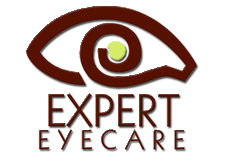Presbyopia
The aging process has the potential to lead to presbyopia. Thankfully, this side effect of the aging process can be treated. Presbyopia makes it challenging to see objects near oneself, typically after the age of 40, due to the gradual diminishment of the eye lens flexibility. The eye no longer focuses on items that are close to it, creating the need for corrective surgery or reading glasses provided by Expert Eyecare. If you cannot see objects that are nearby, if you struggle to read small print or if you have headaches or eye strains when trying to read, you might have presbyopia.
Expert Eyecare treats patients who have presbyopia with bifocal glasses containing distinct lens sections that account for near-vision and distance. Others sing the praises of progressive lenses that use multifocal progression in which magnification helps patients see items at all distances. There are also specialized contact lenses designed specifically with presbyopia in mind. Monovision contact lenses correct close-up vision in one eye and distance vision in the other. The use of such lenses requires a short period of adjustment yet it is well worth it. Multifocal contact lenses boost focus from the lens top to the bottom. In fact, some surgeries are also available to permanently correct presbyopia. As an example, Monovision LASIK surgery improves eye vision distance and near vision. Refractive lens exchange, similar to the removal of cataracts involves the surgeon replacing the natural lens with an artificial lens to boost near vision.
If you would like to learn more about presbyopia, visit: http://www.aoa.org/patients-and-public/eye-and-vision-problems/glossary-of-eye-and-vision-conditions/presbyopia?sso=y or make an appointment with one of our doctors.
